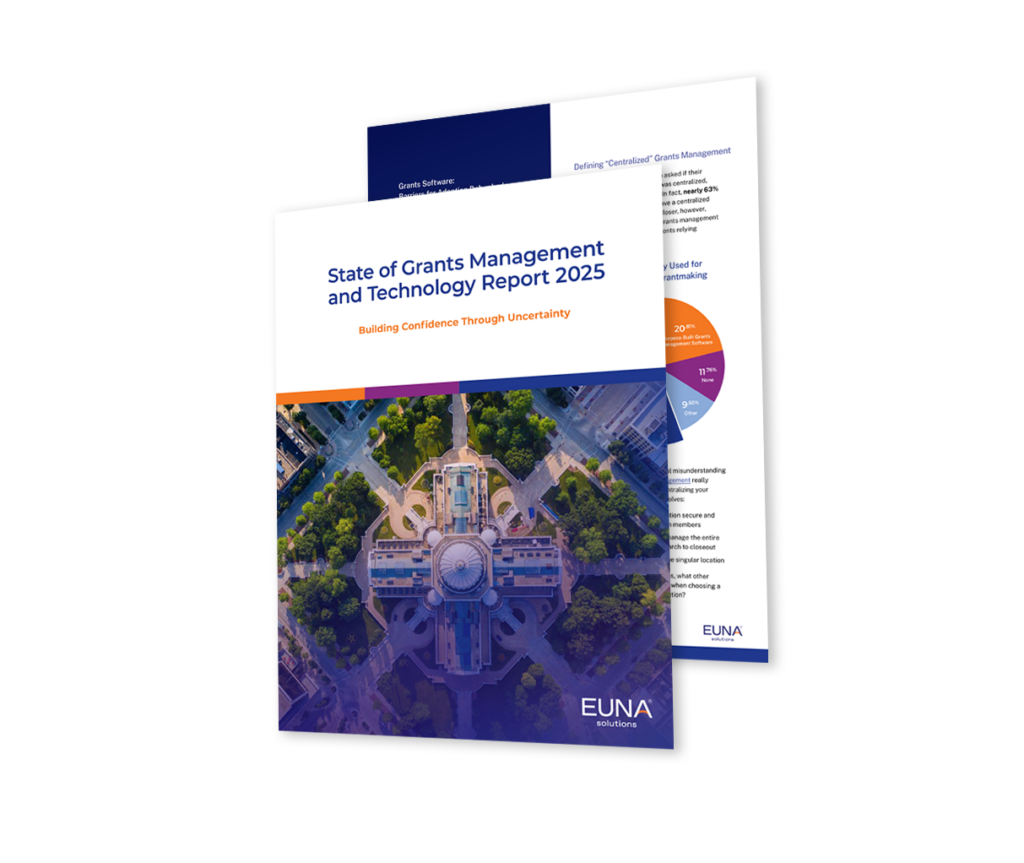What will the future of work look like? It’s the big question public sector agencies across North America are asking right now as mass vaccination – and with it, the prospect of heading back to the office – becomes a reality.
Rather than returning to pre-pandemic norms, many organizations are planning for continued telework or a hybrid work environment. A recent survey of 300 federal government executives found that 82% of respondents expect to continue working remotely at least three days a week once the pandemic ends.
For procurement teams, the task of facilitating sustainable remote-ready operations for the whole organization falls squarely on your shoulders. Here’s what you need to consider as remote work becomes a fixture of day-to-day operations.
“You’re on mute!”
While our collective digital literacy around virtual collaboration tools like video conferencing has increased exponentially over the last year, the unavoidable frustrations of communicating and working together online can’t be denied. This video gives a glimpse into those frustrations — can you relate?
All joking aside, this video highlights that issues like poor connectivity, a lack of training on virtual tools, and the very real phenomena of “Zoom fatigue” will continue to be challenges for work-from-anywhere teams.
Addressing and easing those frustrations will be central to maintaining productivity and employee satisfaction. Connecting employees to the three T’s – the right technology, relevant training, and new teamwork strategies for hybrid work – will be key to delivering public services securely, productively, and with your sanity intact.
1. The right technology
While many public sector organizations made an impressive pivot to digital operations in a matter of days at the outset of the pandemic, that makeshift approach – what we call patchwork procurement – isn’t sustainable over the long term.
Agencies that will succeed in permanent remote-ready operations are now strategizing about how to leverage their accelerated digital transformation to make real gains in infrastructure, security, connectivity, cloud services, and virtual collaboration platforms.
Forward-thinking procurement teams are using that momentum and internal buy-in to make long-term sustainable changes to their tech stack and processes to ensure teams have the tools and resources to work efficiently from anywhere.
2. Relevant training
The rapid shift to remote work meant that employees with less technical knowhow were (and still are) facing serious frustrations and barriers to productivity. They had to discover tricks or invent workarounds for making their tools work for them (some of which raise serious compliance issues).
A 2020 study on digital inclusion from the World Economic Forum reports that while 62% of the population of higher-income economies has basic digital skills, that number drops to 44% for standard skills like using formulas in a spreadsheet or creating presentations.
Simply put, having the right technology is only half the battle. Making sure everyone understands how to use it properly is a make-or-break factor. Going forward, consider how you can implement training programs that meet team members where they are and help them learn new software and processes in a safe, accessible, jargon-free environment.
3. Teamwork strategies
Collaboration between home- and office-based employees will be more prevalent in the coming years as employees leverage flexible work arrangements. With that in mind, organizations are developing strategies in two key areas to ensure everyone has the same experience, no matter where they’re working.
The first is the hybrid meeting scenario, in which some employees are working at home and others are in the office. Agencies should consider their strategy for implementing collaboration technologies to foster inclusion and participation.
The second is digital workplace culture. As McKinsey notes, traditional office environments establish workplace culture through ways of working and standards of behavior that build social cohesion and shared trust. That’s harder to achieve in online settings where remote workers can easily become “isolated, disenfranchised, and unhappy.” Agencies should look at creating deliberate strategies and implementing tactics for replicating the positive elements of co-location and in-person collaboration in digital settings.
The takeaway
By investing in the right technology, implementing relevant training programs, and developing a strategy for remote employee engagement, procurement teams can support agencies in making the shift to sustainable remote-ready operations. These efforts will ensure your teams have the right tools and resources to work efficiently and cost-effectively going forward.
It’s safe to say that telecommuting in the public sector is here to stay, and procurement will no doubt be called upon to source the products and solutions needed to build that infrastructure securely. Learn more about how your procurement team can support your agency’s remote work plan by downloading our eBook, The Rise of Procurement’s Next Normal.

